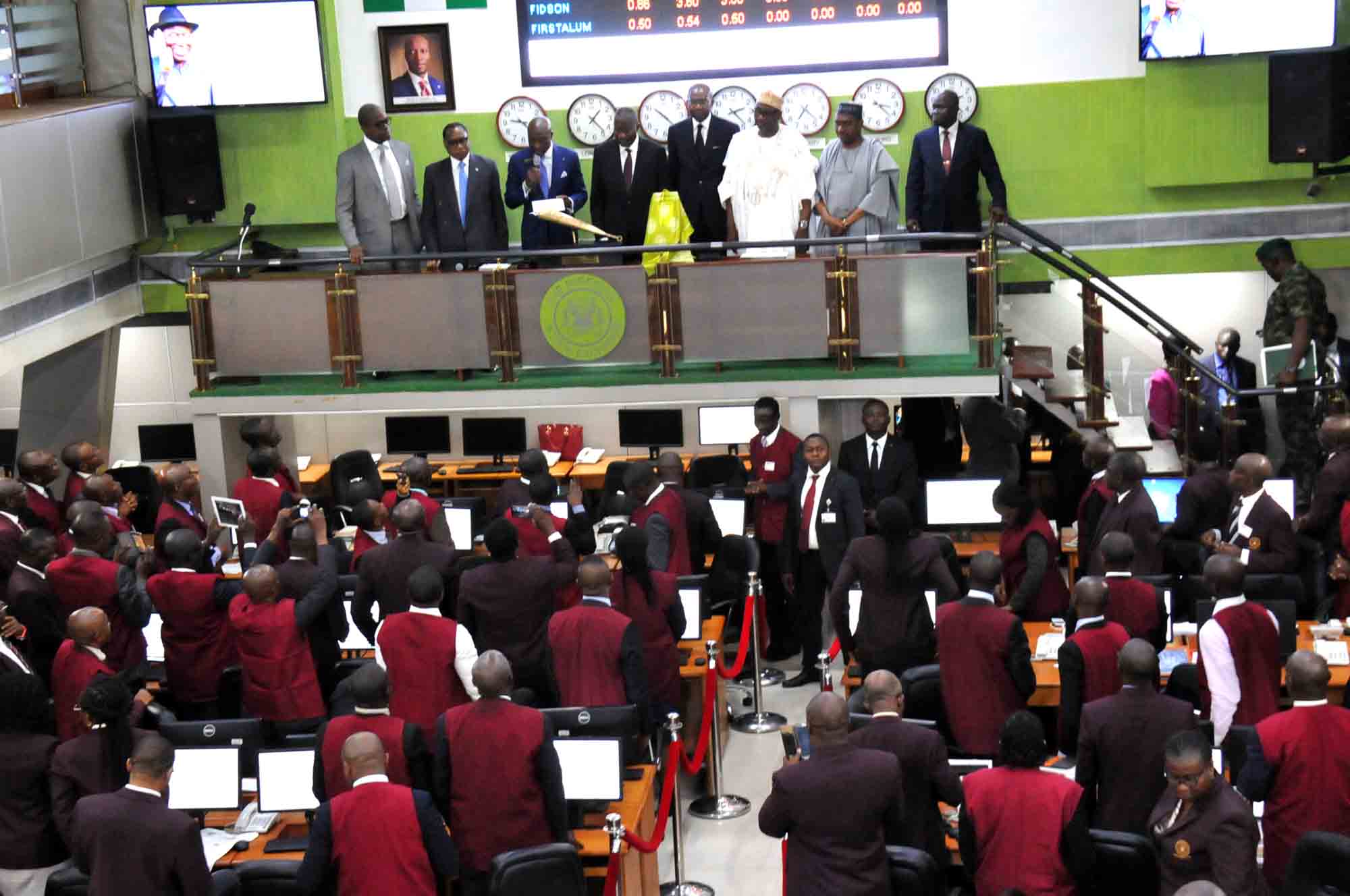- FGN Savings Bond Listed on Nigeria Stock Exchange
The Nigeria Stock Exchange (NSE) wednesday approved the listing of N2.067 billion Federal Government of Nigeria (FGN) Savings Bond on the floor of the exchange.
NSE Chief Executive Office, Oscar Onyema, who approved the listing, when a team from the Debt Management Office (DMO) visited the trading floor of the NSE, praised the DMO for its commitment for growing the savings bond market.
DMO Director-General, Dr. Abraham Nwankwo, who sounded the closing gong at the NSE said approval of the bonds listings which came with 13.01 per cent coupon was key to empowering the grassroots into achieving sustainable wealth creation.
Nwankwo said: “It’s an exciting day for Nigerian and DMO in particular. We were giving the opportunity to introduce a savings bond with the Central Bank of Nigeria (CBN), Securities and Exchange Commission (SEC) and other relevant agencies for supporting our efforts”.
He said the federal government want to ensure that progress being witnessed in the economy, reaches and benefits the grassroots.
The DMO boss said that out of the 2,555 people that subscribed for the offer, over 95 per cent were individuals consisting of ordinary Nigerians on the street including barbers, hairdressers, vulcanizers teachers, motor park workers among others.
“These are the people that subscribed for the offer. We are so excited and happy that Nigeria has broken the jinx to make sure that everybody in the country is part and parcel of activities in the capital market. And that is very consistent with the plan of the Federal Government. I repeat that whatever progress Nigeria is making should be inclusive and ordinary people should be part and parcel of it so we are happy that this aspect of the change agenda has been implemented and this will continue every month,” Nwankwo said.
Continuing, he said the funds realized from the offer will be used to fund the budget deficit, and refinance matured existing/domestic bonds.
He said that the bond refinancing makes it possible for the FGN Savings Bond will continue in perpetuity, and on monthly basis. “The April 2017 offer will coming up on April 3, and it will continue every first week of the month. Nigerians will continue to benefit from the FGN Bonds. We congratulate the NSE for their continued initiative and operation for helping to make the listing a success,” he said.
He said the FGN Savings Bond has helped the ordinary Nigerians to participate in the capital market with create benefits that will accrue to their investments.
“What the federal government has done through the FGN Savings Bond is to make this opportunity not only for the big investors from pension firms or banks to be part of it, but also for the ordinary man on the street to participate. Another benefit here is to give every Nigerian opportunity to participate in the capital market and it is an inclusive programme that allows everyone to be part and parcel of it. The bond can also be used as collateral to borrow money from banks, more importantly the bond is liquid,” he said.
He explained that for investors that invested in the two-year bond, such investors can sell their bonds before the maturity if they have urgent need for money because the offer is listed on the stock exchange.
“There will be continuous campaign, advertisement and interactive sessions and we expect the media to play a big role in disseminating this information of the FGN savings bond so that more Nigerians will be part and parcel of this movement. The federal government and the DMO will continue to do all it can to ensure information is disseminated concerning the offer,” he said.
Nwankwo said over 120 stockbrokers are actively marketing the bond in the nooks and crannies of Nigeria to make sure people partake in it.
The FGN Savings Bonds are debt instruments offered by sovereigns to mobilise resources from the general public, especially individuals and small savers. It offers guarantees that help to stimulate and deepen the savings culture among households, assists in the diversification of funding sources for the government and establishes benchmarks for other issuers. It equally encourages financial inclusion across the social and economic strata.
The bonds will be “good for savings towards retirement, marriage, school fees, house projects,” the DMO said. According to the debt office, issuance of the bond will sustain the development of other segments of the bond market and support government’s financing needs in the years ahead.


 Naira4 weeks ago
Naira4 weeks ago


 Naira4 weeks ago
Naira4 weeks ago




 Naira4 weeks ago
Naira4 weeks ago




 Naira3 weeks ago
Naira3 weeks ago
 Commodities4 weeks ago
Commodities4 weeks ago


 News4 weeks ago
News4 weeks ago
 Travel4 weeks ago
Travel4 weeks ago




 Naira3 weeks ago
Naira3 weeks ago





















